This article was co-authored by Laura Marusinec, MD. Dr. Marusinec is a board certified Pediatrician at the Children's Hospital of Wisconsin, where she is on the Clinical Practice Council. She received her M.D. from the Medical College of Wisconsin School of Medicine in 1995 and completed her residency at the Medical College of Wisconsin in Pediatrics in 1998. She is a member of the American Medical Writers Association and the Society for Pediatric Urgent Care.
There are 9 references cited in this article, which can be found at the bottom of the page.
wikiHow marks an article as reader-approved once it receives enough positive feedback. In this case, 91% of readers who voted found the article helpful, earning it our reader-approved status.
This article has been viewed 146,558 times.
Though it is a routine procedure, a circumcision requires proper care and cleaning to heal properly. When caring for a newly circumcised newborn, clean the area after every diaper change, keep the area dry, wash the wound gently, let it air dry, dress the wound with gauze and vaseline, and do frequent diaper changes. When caring for an adult circumcision, soak the wound 48 hours after the procedure to remove the initial bandage, change the dressing every day or two, shower carefully, and keep it dry. Watch for possible signs of infection like persistent redness, swelling, bleeding, and yellow discharge, as well as sores or difficulty urinating.
Steps
Caring for a Newborn's Circumcision
-
1Clean the area after every diaper change. After every diaper change, make sure that no stool or urine remain on the circumcision area. Gently clean it with a soft cloth soaked with water and a mild baby soap, then dab it with a clean, wet cloth to rinse. Avoid using baby wipes on the area for at least the first 7-10 days as they may be abrasive and cause your baby pain.[1]
-
2Let the area air dry. After cleaning, allow the circumcision area to air dry on its own. Towel drying can cause irritation to the wound while it is healing. If you give your baby a sponge bath, gently dry the rest of their body with a towel and avoid the circumcision area.[2]
-
3Check and change your baby's diaper frequently. To prevent infection or irritation, check your baby's diaper frequently. Newborns may urinate 20 times a day, so check your baby's diaper every 2-3 hours (also when the baby cries, or you just sense a change is needed) to make sure it is not wet or soiled.[3] Urine and stool may cause an infection to the circumcision wound if left for too long.[4]
-
4Opt for sponge baths. During the 7-10 days that your baby's circumcised penis is healing, avoid submerging it in water. Give your baby sponge baths with water and a mild baby soap. Wash your baby's head, face, and body separately, making sure to dry each area and cover your baby between parts to keep them warm.[5]
-
5Dress the wound. While your baby's circumcision is healing, dress it to keep your baby's diaper from rubbing against it. Follow your doctor's instructions, but usually after cleaning and air drying, gently cover the wound area with vaseline to keep anything from sticking to it. Your doctor may also recommend wrapping a small piece of gauze around the circumcision before putting on your baby's diaper.[6]
Looking After an Adult Circumcision
-
1Avoid a bath or shower for the first 48 hours. During the first 48 hours after an adult circumcision, avoid getting the wound wet by skipping a bath or shower. Instead, clean up with a wet cloth or towel, avoiding the bandaged area. The circumcision wound should be watertight after 48 hours.[7]
-
2Remove the initial bandage. The bandage and gauze applied by the doctor after the circumcision should be removed 48 hours after the procedure by soaking the area in a shallow bath. Fill a bath or basin with warm water and salt (epsom salt or regular table salt) to promote healing. Let the water soak the bandage long enough to allow you to remove it without pieces of gauze sticking to the wound.[8]
- Only soak the area long enough to remove all the dried blood and gauze fibers from the area, then pat it dry gently with clean gauze.
-
3Apply clean bandages regularly. Change your bandages every 24-48 hours, or if they get wet. A few drops of urine can be overlooked, but liquid that saturates through the bandage will be cause for a new dressing. Apply a small amount of vaseline to the glans and shaft of the penis to prevent the bandage from sticking to the skin.[9]
-
4Wait at least 2 weeks before a bath. While a shower can be safe for the circumcised penis after 48 hours, the wound should not be submerged in a bath until it is healed (with the exception of removing the initial dressing). Taking a bath can wash bacteria into the wound, which may cause an infection. Initial healing normally takes 2-3 weeks, though healing time may vary depending on an individual's age, lifestyle, and medical history.[10]
-
5Shower carefully. When showering during the time the circumcised penis is healing, avoid letting the shower stream hit the wound directly. Shelter the wound site with your hand to prevent injury. Your hand will absorb the force of the water while still allowing the area to get wet.[11]
Monitoring the Wound
-
1Check for redness, swelling or a fever. Check the wound site for signs of redness and swelling. Redness and swelling of the circumcision area are both normal during the 7-10 days it takes to heal. If the area grows redder or more swollen 5-10 days after the procedure, or if the area seems warm or more painful, contact your doctor since this could indicate an infection.[12] Call your pediatrician right away if your baby has a fever (100.4° F or higher rectally), he will need to be seen immediately.
-
2Look for blood. Check for signs of blood during the first few days after the circumcision. A few drops of blood (smaller than the size of a quarter) are normal during this period. Larger drops of blood, and more persistent bleeding, are signs for concern and warrant an immediate call to your doctor or child's pediatrician.[13]
-
3Watch for lasting yellow or green discharge. A small amount of scabbing and yellow discharge is normal during the healing process, but it is a cause for concern if it lasts longer than a week. Also note if the discharge is green, has a bad smell or is increasing in amount as this can be signs of an infection. Check the circumcision site carefully for discharge. If you see any 7 days after the procedure, contact your pediatrician.[14]
-
4Inspect the wound site for sores. While a small amount of scabbing is normal while the circumcision site heals, you should not see any sores around the area. Check the wound for sores, and contact your doctor immediately if you see any. Crusty, fluid-filled sores may be a sign of infection.[15]
-
5Keep track of urination. In the case of both newborn and adult circumcisions, a problem with urination is an important warning sign of complications or an infection. If your newborn does not urinate within 6-8 hours of the procedure, call your pediatrician immediately. If there is any pain or difficulty urinating following an adult circumcision, contact your doctor right away.[16]
References
- ↑ http://www.whattoexpect.com/first-year/circumcision-care
- ↑ http://www.whattoexpect.com/first-year/circumcision-care
- ↑ http://americanpregnancy.org/first-year-of-life/changing-a-diaper/
- ↑ http://www.parents.com/baby/care/newborn/circumcision/
- ↑ https://www.johnsonsbaby.com/bath/how-to-bathe-a-baby/sponge-bath
- ↑ http://www.parents.com/baby/care/newborn/circumcision/
- ↑ http://www.circinfo.com/post-op_care/poa-en-w.pdf
- ↑ http://www.circinfo.com/post-op_care/poa-en-w.pdf
- ↑ http://www.circinfo.com/post-op_care/poa-en-w.pdf
- ↑ http://www.circinfo.com/post-op_care/poa-en-w.pdf?
- ↑ http://www.circinfo.com/post-op_care/poa-en-w.pdf
- ↑ http://www.parents.com/baby/care/newborn/circumcision/
- ↑ http://www.kveller.com/article/how-to-care-for-your-newly-circumcised-baby/
- ↑ http://www.whattoexpect.com/first-year/circumcision-care
- ↑ http://www.whattoexpect.com/first-year/circumcision-care
- ↑ http://www.nhs.uk/Conditions/Circumcision/Pages/Introduction.aspx
About This Article
A circumcision requires thorough care and cleaning to heal properly. To care for a newborn’s circumcision, clean the area using a soft, damp cloth at every diaper change. Avoid using baby wipes for the first 7 to 10 days, as these can be abrasive and cause pain. Once the area is clean, let it air dry to avoid irritating the wound. To bathe your baby, opt for sponge baths for the first 7 to 10 days to help the wound heal. To care for an adult’s circumcision, wait for at least 48 hours after the procedure to have a bath or shower, as you need to avoid the wound getting wet. After 48 hours, soak the area in a shallow bath to remove the initial bandage. Apply clean bandages to the area every 24 to 48 hours, or whenever the area gets wet. Use a thin layer of vaseline under the bandage to prevent it from sticking to the wound. For more information from our Medical co-author, like how to monitor the wound, read on.
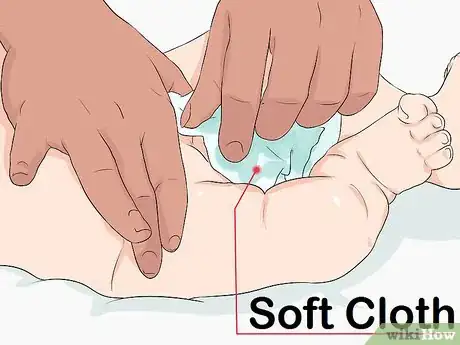
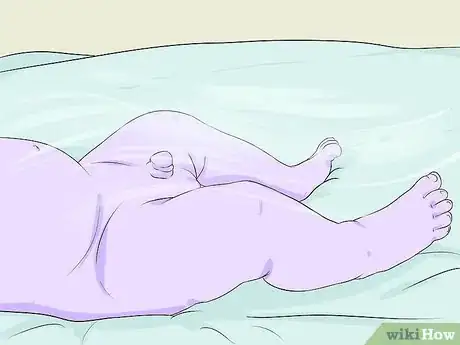
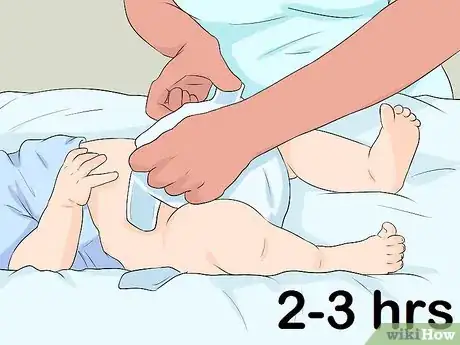



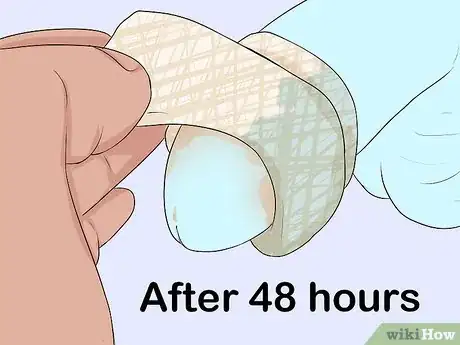
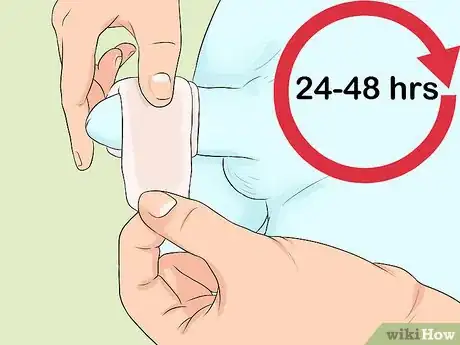


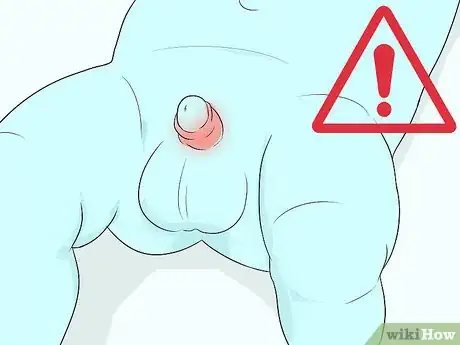
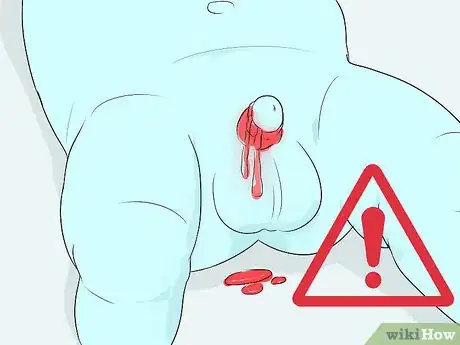


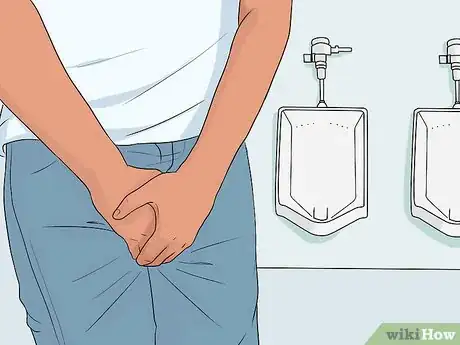



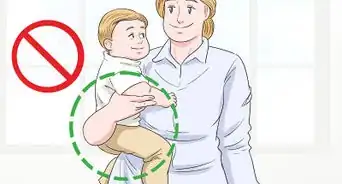



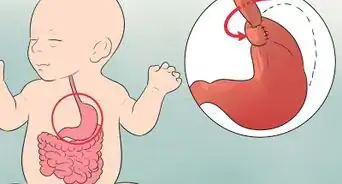
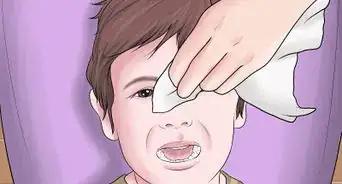

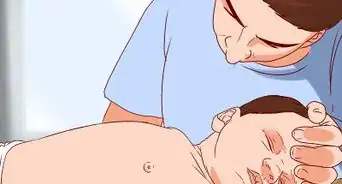














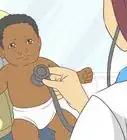
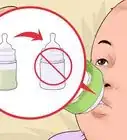
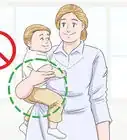



































Medical Disclaimer
The content of this article is not intended to be a substitute for professional medical advice, examination, diagnosis, or treatment. You should always contact your doctor or other qualified healthcare professional before starting, changing, or stopping any kind of health treatment.
Read More...